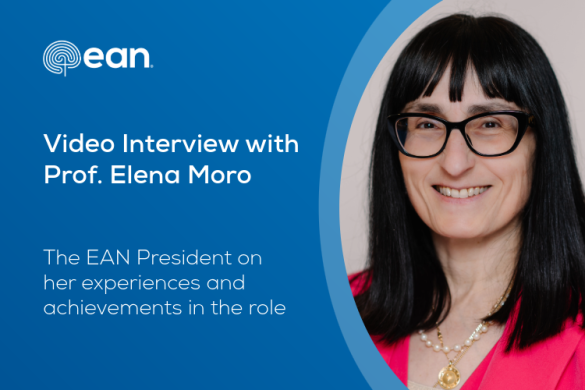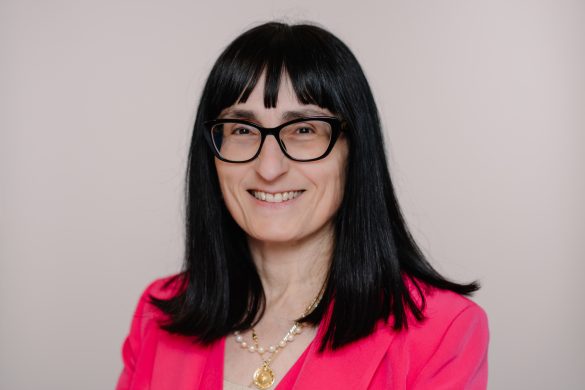Prof. D. Muresanu, Chair of the EAN Communication Committee interviews Prof. Maged Abdel Naseer

Prof. Maged Abdel Naseer
President of the Pan Arab Union of Neurological Societies (PAUNS)
WFN delegate for Egypt
MBBCh, MSc, MD, FAAN
Emeritus Chair Prof of Neurology, Cairo University
President of the Egyptian Society of Neurology, Psychiatry, and Neurosurgery
1. Kindly illustrate the structure and goals of PAUNS to the EAN Pages readers.
The Pan Arab Union of Neurological Societies (PAUNS) is an Arab Federation founded in 1975. It is one of the regional organizations of the World Federation of Neurology (WFN). All neurological societies of the Arab countries are member of PAUNS. Geographically, PAUNS is classified into four regions:
1- Magharabian countries including Mauritania, Morocco, Algeria, Tunisia and Libya
2- Nile Valley countries including Egypt, Sudan, Djibouti, and Somalia
3- Al Sham countries including Lebanon, Syria, Jordan, Palestine and Iraq
4- Gulf countries including Saudi Arabia, United Arab Emirates, Kuwait, Bahrain, Qatar, Oman and Yemen
The executive board constitutes of:
President:
Prof Maged Abdel Naseer (Egypt)
Vice Presidents (one from each geographic region):
1- Prof Hisham Chafik (Morocco)
2- Prof Ammar Al Taher (Sudan)
3- Prof Adel Misk (Palestine)
4- Prof Jasem Al Hashel (Kuwait)
General Secretary: Amina Gargoury (Tunisia)
Treasurer: Prof Hany Aref (Egypt)
The main goals PAUNS pursues are:
– To coordinate and support efforts of the member societies toward improvement of neurological services for the people of the Arab world,
– To optimize neurological care, education and research for junior neurologists and
– To promote public health initiatives increasing the awareness of the importance of brain health.
2. How does PAUNS promote the development of clinical neurology and neurological science throughout the member countries to PAUNS?
Under the PAUNS umbrella, a Pan-Arab Congress takes place every two years in one of the Arabian countries according to the geographic arrangement of the four regions.
PAUNS promotes the development of clinical neurology and neurological sciences in Arab countries through:
– coordinating the cooperation of Arab National Societies of Neurology and promoting international collaboration;
– improving the care of patients with neurological diseases in all regions of Arab countries,
– Promoting excellence in clinical research different neurological sub- specialties (stroke, epilepsy, headache, multiple sclerosis, etc.),
– striving for optimal moral and ethical professional behavior of all members of the affiliated neurological societies and for compliance with the constitution and bylaws of the Federation,
– supporting at national and international level the professional practice of neurology in the Arab countries
– encouraging the continuing education of all the members of the member societies especially young neurologists,
– maintaining and improving the level of public awareness regarding neurological diseases at national and international levels; and
– contributing to different brain health initiatives around the world.
3. As you also mentioned during the leadership meeting, education is the stepping-stone to excellence in neurology. What educational initiatives does PAUNS promote and do these imply an exchange of students among the PAUNS member countries?
PAUNS highlights the importance of tailoring neurological education for each country. Educational programs must be organized around individual epidemiological profiles. PAUNS, with the support of WFN, promoted neurological education through training centers in Cairo, Egypt for English speaking African countries and in Rabat, Morocco for French speaking African countries.
4. EAN looks forward to working with you and PAUNS. How do you see such cooperation and what would be your main suggestions for this cooperation?
– Research collaboration in areas of common interest (for example, neurological complications of the COVID-19 pandemic
– Faculty and student exchange programs between European and Arabian neurology societies
– Keeping the mutual participation of EAN and PAUNS faculty in both organizations congresses










